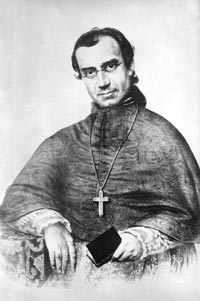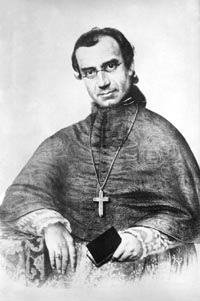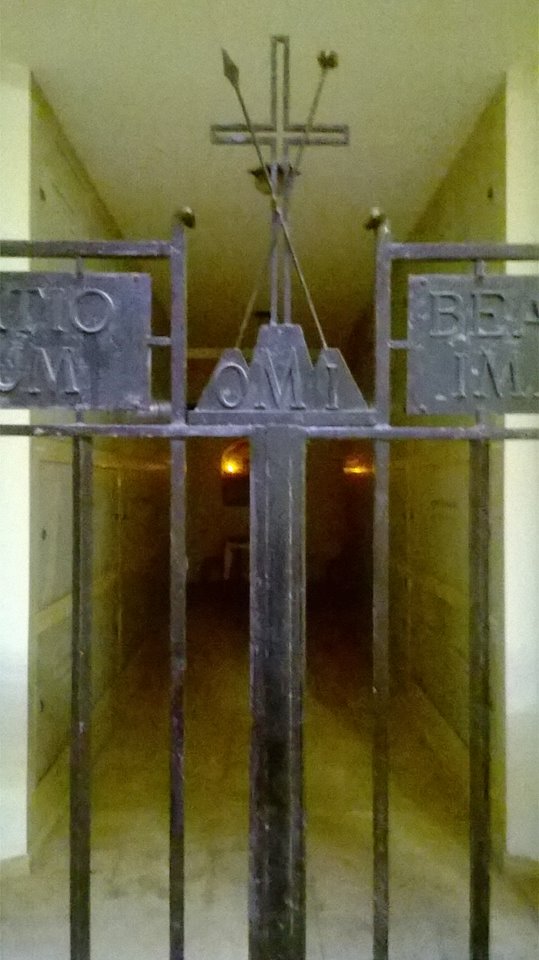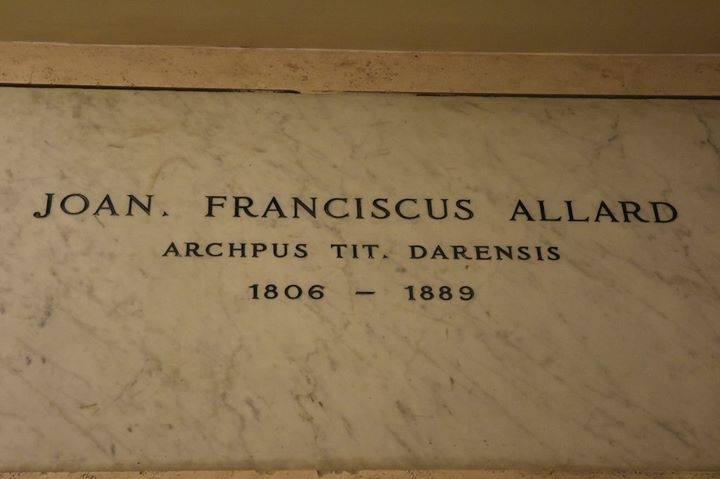Held in high regard by the founder, Bishop Eugène de Mazenod, Allard served numerous tasks in both France and Canada, in the latter country he served among others as Father Allard functioned as master of novices in Longueuil from 1843 to 1849 and at the same time, he served as master of novices and teacher with the Sisters of the Holy Names of Jesus and Mary.
Appointed the first vicar apostolic of Natal, South Africa, on January 29 of 1851, he received his episcopal consecration with the titular see of Sebaste in Palaestina from de Mazenod himself on the following July 13. Arriving arrived in Port Natal on March 15 of the following year along with four other oblates, he built a chapel and a house in Durban and in Pietermaritzburg where he established his residence. After a series of failures in their evangelization missions, they were welcomed by King Moshoeshoe in the land of the Basotho and founded the mission of the Mother of Jesus Village.
In 1870, while Bishop Allard was attending the Vatican Council, his priests lodged complaints against him, leading to have Father Aimé Martinet, assistant general, sent over in South Africa to make a canonical visit. Drawing up a report that was very critical of Allard's administration, stating that the bishop did not know the languages of the country and no longer did any traveling, after his return to Paris in 1872, the general administration made the decision to confer the direction of the vicariate to someone who was younger. Thus, on June 4, Father Fabre communicated this decision to the bishop and asked him to submit his resignation. Bishop Allard refused and accused the visitor of having lacked objectivity and have overstepped his authority. The Congregation of the Propaganda Fide initially stepped in to defend the bishop but after several months of epistolary exchange and negotiations between the Oblates, the Congregation and the bishop, the latter finally offered his resignation on June 6, 1874. Accepted on June 18 by Pius IX, the latter appointed him titular archbishop of Tharona and consultor to the Congregation of the Propaganda.
Bishop Allard subsequently retired in Rome living in a private house at via Monterone 79 until 1887 when he moved to the new scholasticate at via Vittorino da Feltre where he remained until his death. His life in Rome was one of recollection and prayer, observing the rule with the meticulousness of a novice.
Held in high regard by the founder, Bishop Eugène de Mazenod, Allard served numerous tasks in both France and Canada, in the latter country he served among others as Father Allard functioned as master of novices in Longueuil from 1843 to 1849 and at the same time, he served as master of novices and teacher with the Sisters of the Holy Names of Jesus and Mary.
Appointed the first vicar apostolic of Natal, South Africa, on January 29 of 1851, he received his episcopal consecration with the titular see of Sebaste in Palaestina from de Mazenod himself on the following July 13. Arriving arrived in Port Natal on March 15 of the following year along with four other oblates, he built a chapel and a house in Durban and in Pietermaritzburg where he established his residence. After a series of failures in their evangelization missions, they were welcomed by King Moshoeshoe in the land of the Basotho and founded the mission of the Mother of Jesus Village.
In 1870, while Bishop Allard was attending the Vatican Council, his priests lodged complaints against him, leading to have Father Aimé Martinet, assistant general, sent over in South Africa to make a canonical visit. Drawing up a report that was very critical of Allard's administration, stating that the bishop did not know the languages of the country and no longer did any traveling, after his return to Paris in 1872, the general administration made the decision to confer the direction of the vicariate to someone who was younger. Thus, on June 4, Father Fabre communicated this decision to the bishop and asked him to submit his resignation. Bishop Allard refused and accused the visitor of having lacked objectivity and have overstepped his authority. The Congregation of the Propaganda Fide initially stepped in to defend the bishop but after several months of epistolary exchange and negotiations between the Oblates, the Congregation and the bishop, the latter finally offered his resignation on June 6, 1874. Accepted on June 18 by Pius IX, the latter appointed him titular archbishop of Tharona and consultor to the Congregation of the Propaganda.
Bishop Allard subsequently retired in Rome living in a private house at via Monterone 79 until 1887 when he moved to the new scholasticate at via Vittorino da Feltre where he remained until his death. His life in Rome was one of recollection and prayer, observing the rule with the meticulousness of a novice.
Advertisement
Explore more
Sponsored by Ancestry
Advertisement




